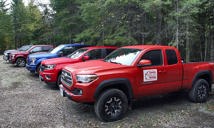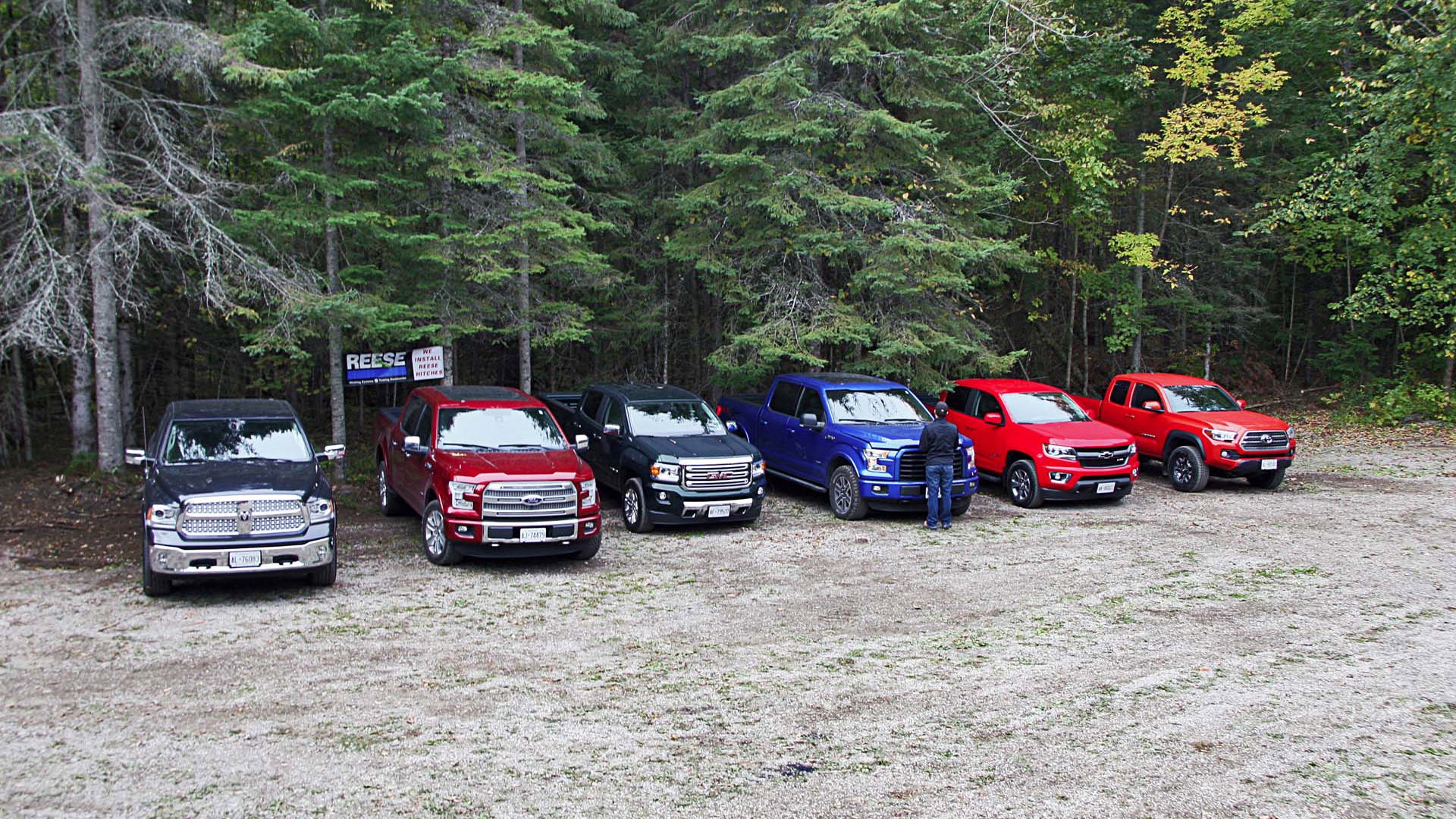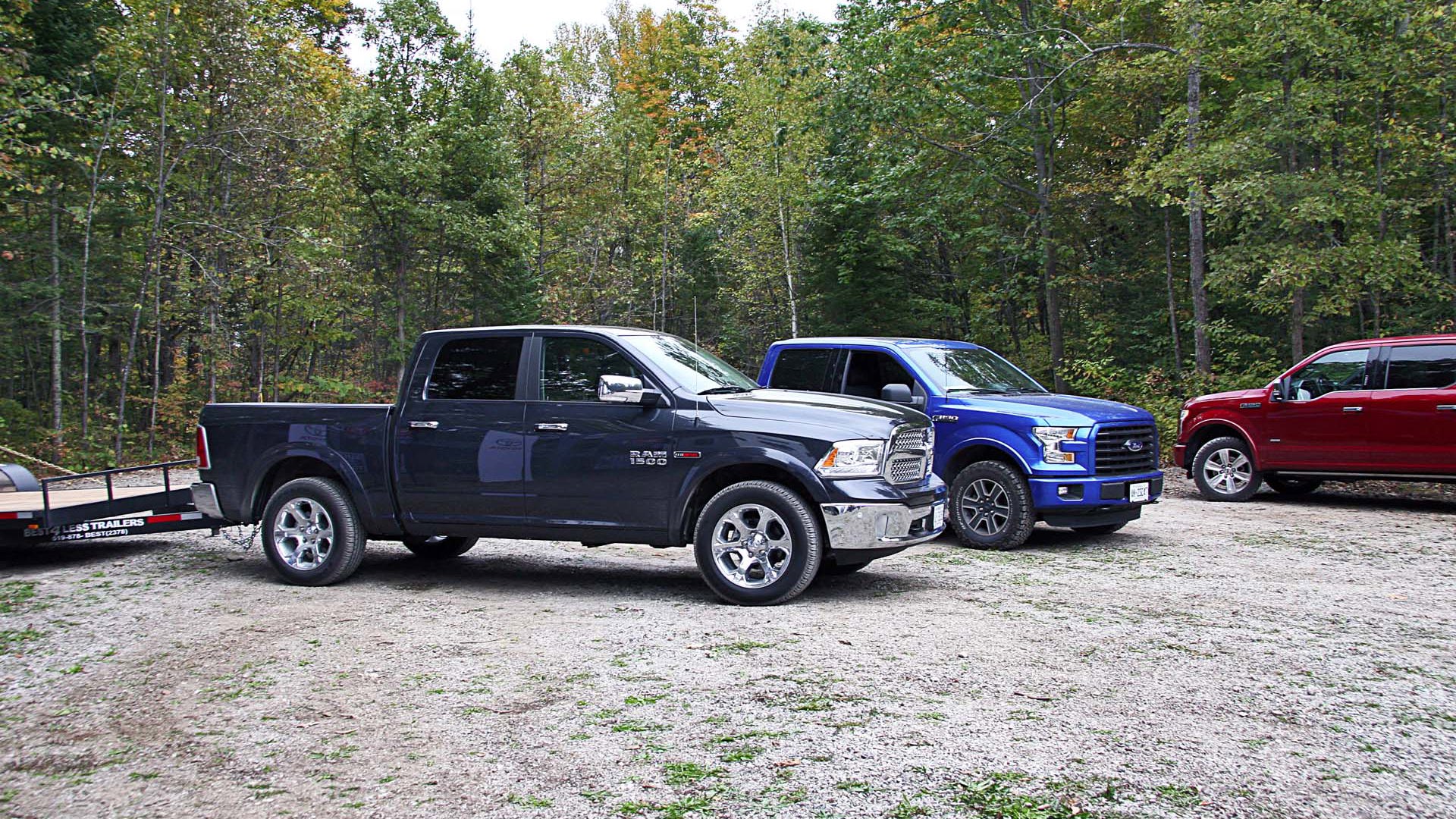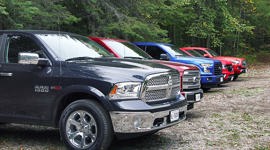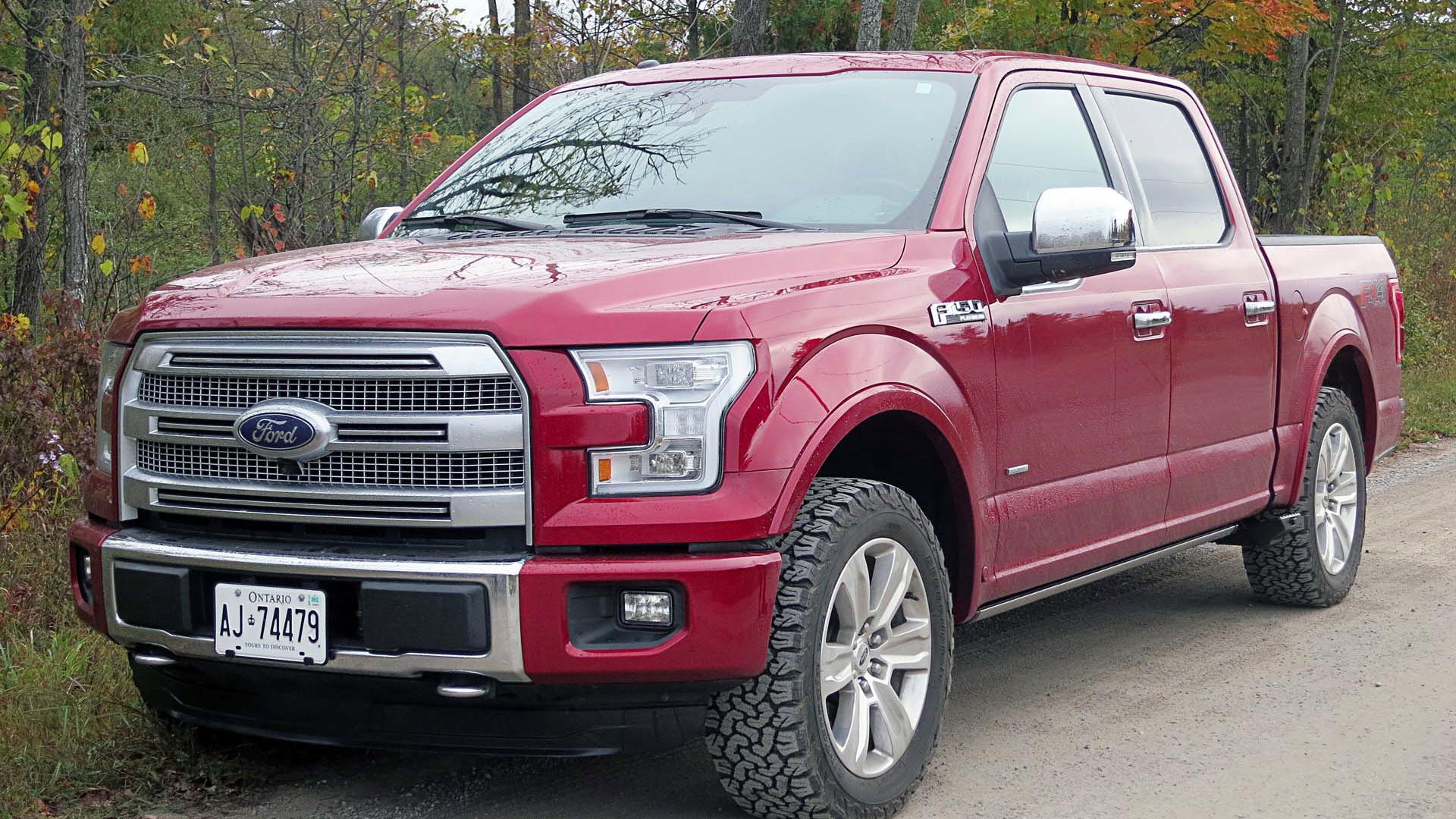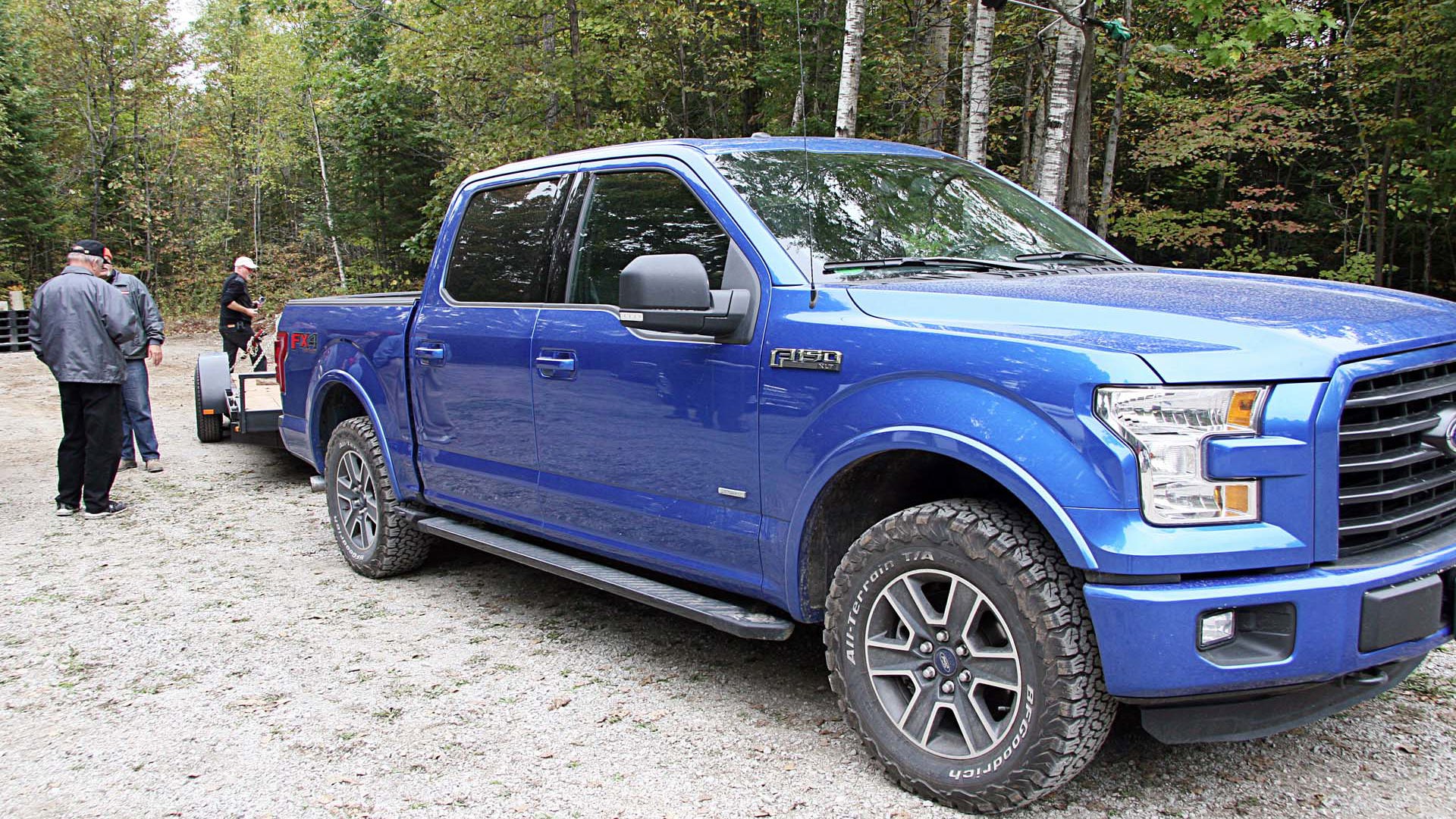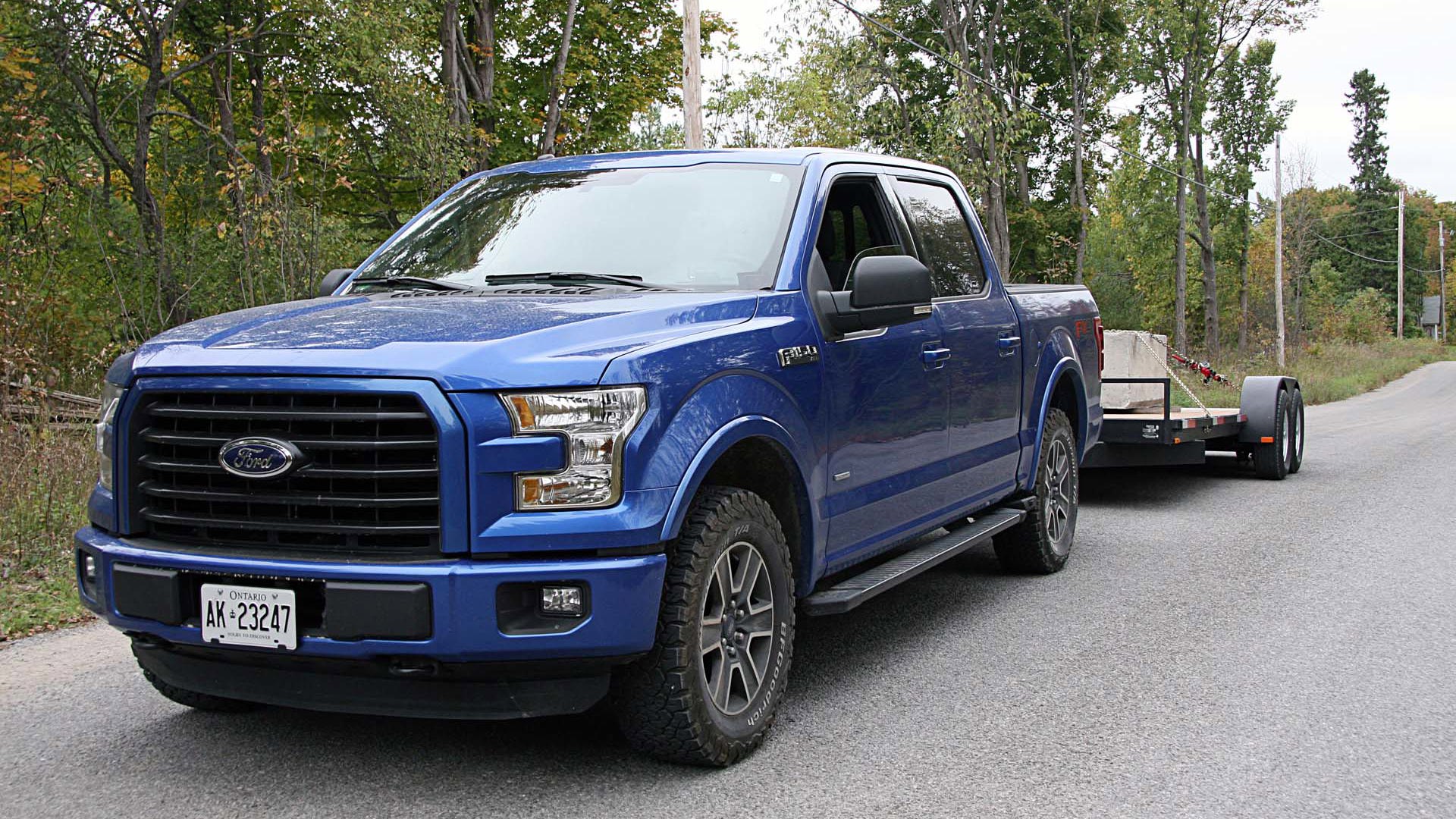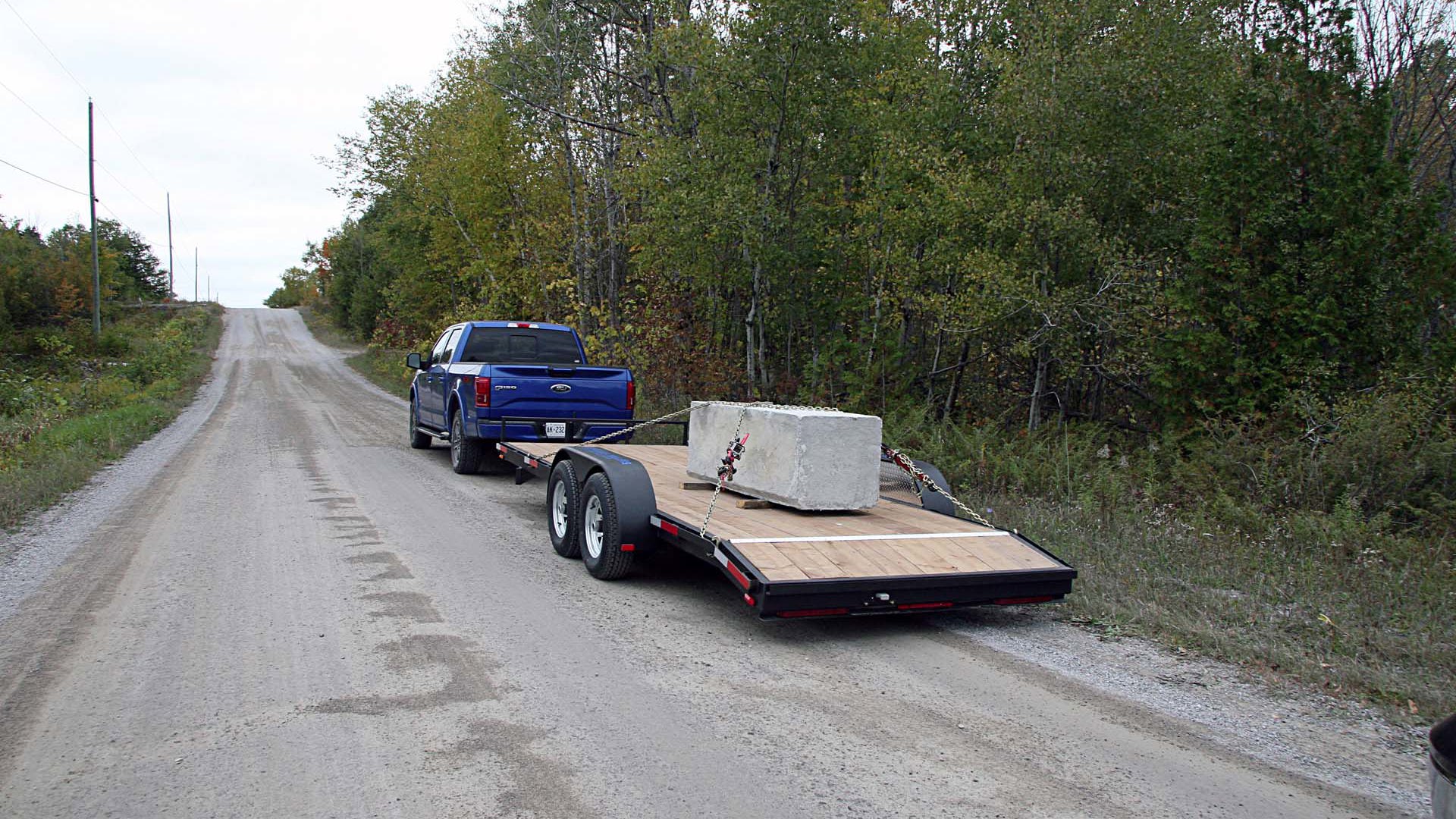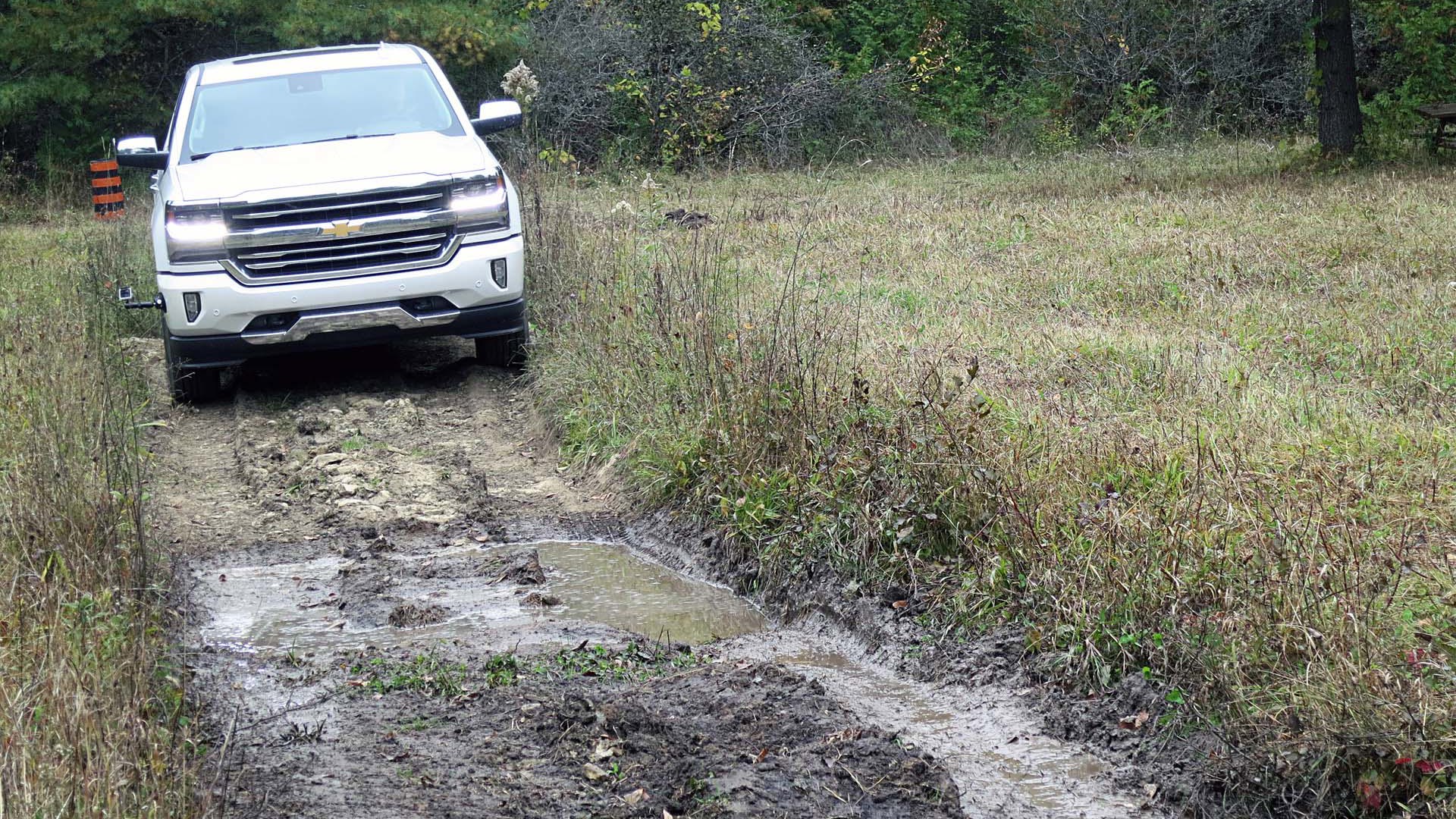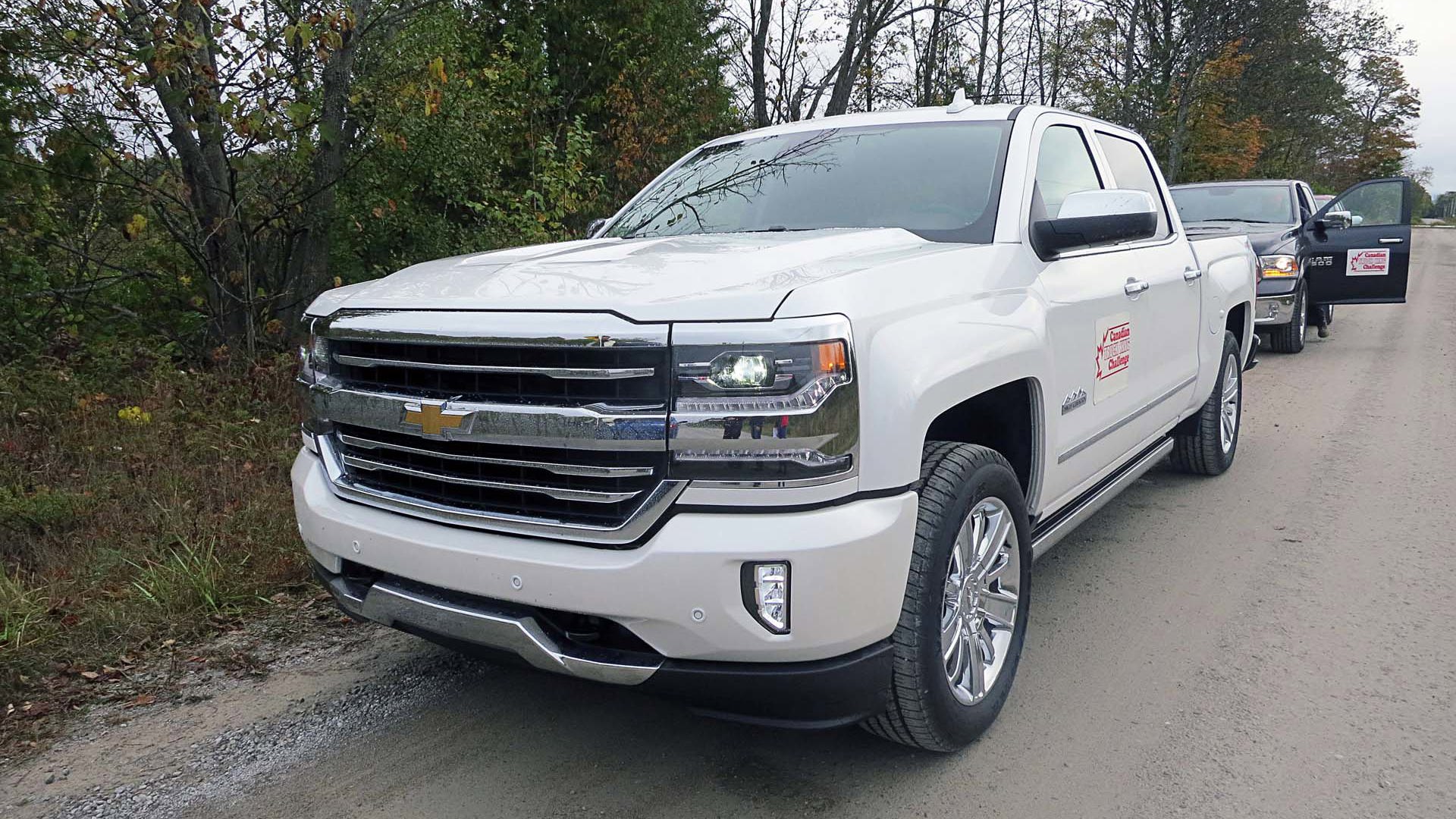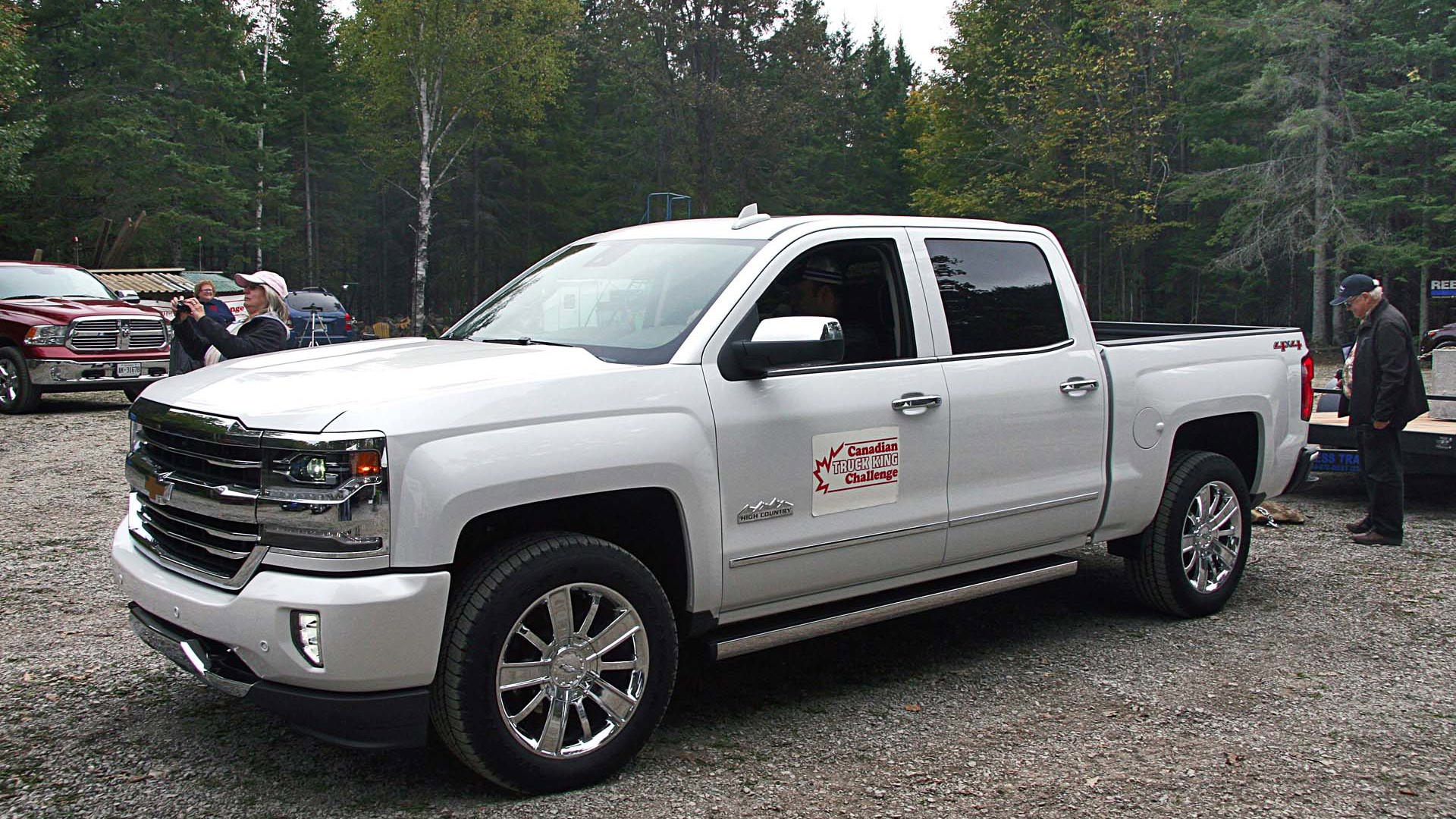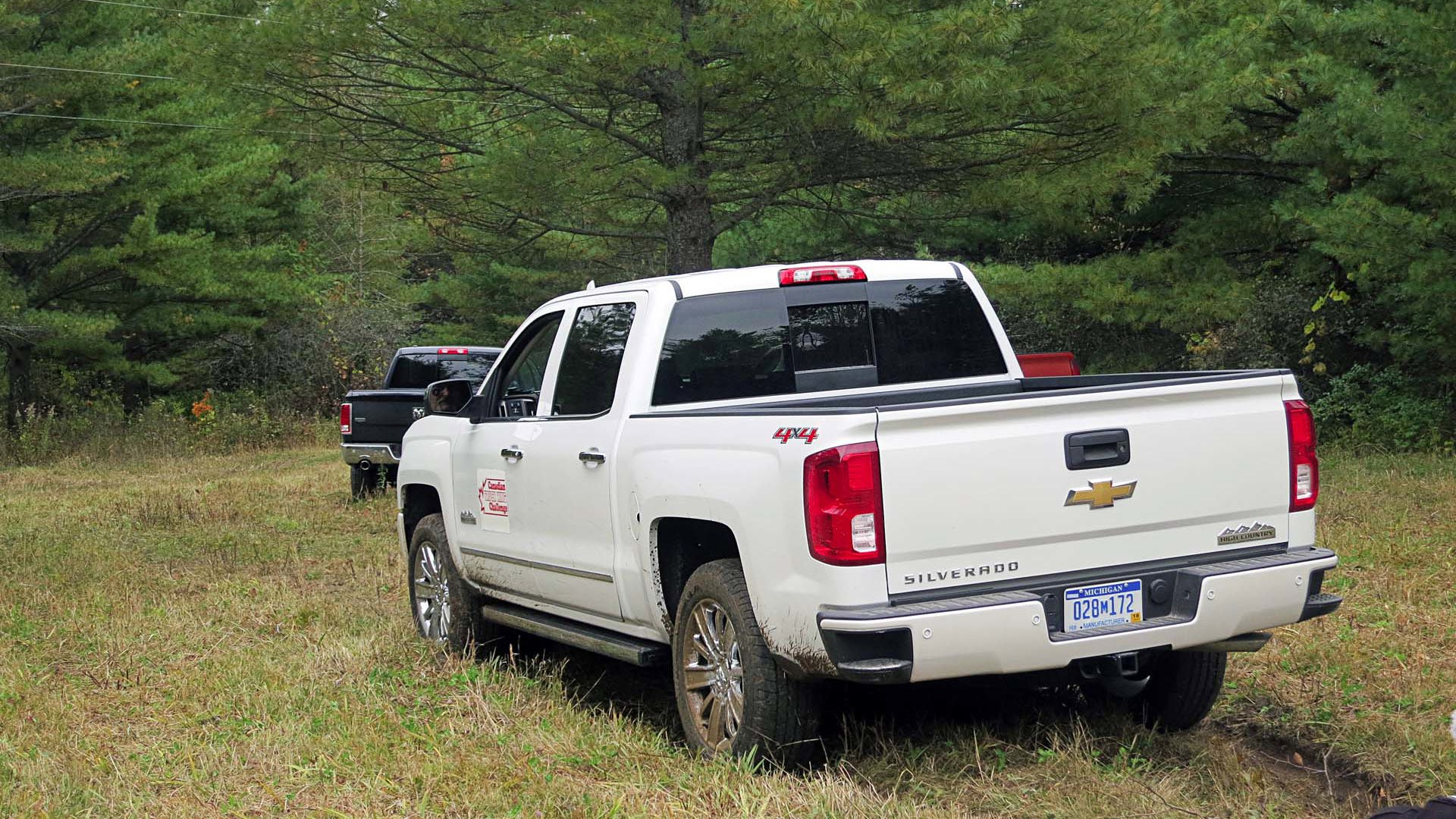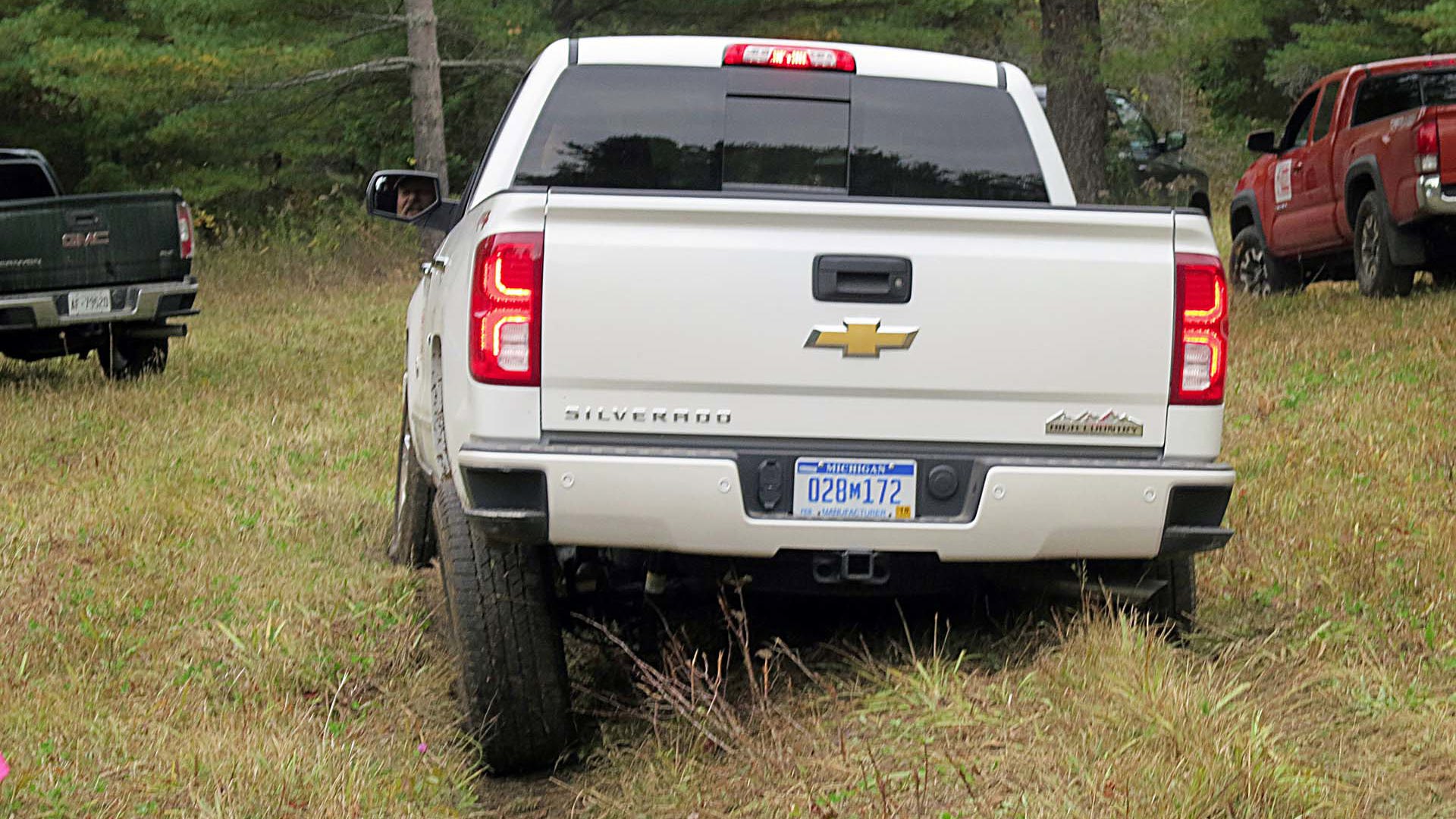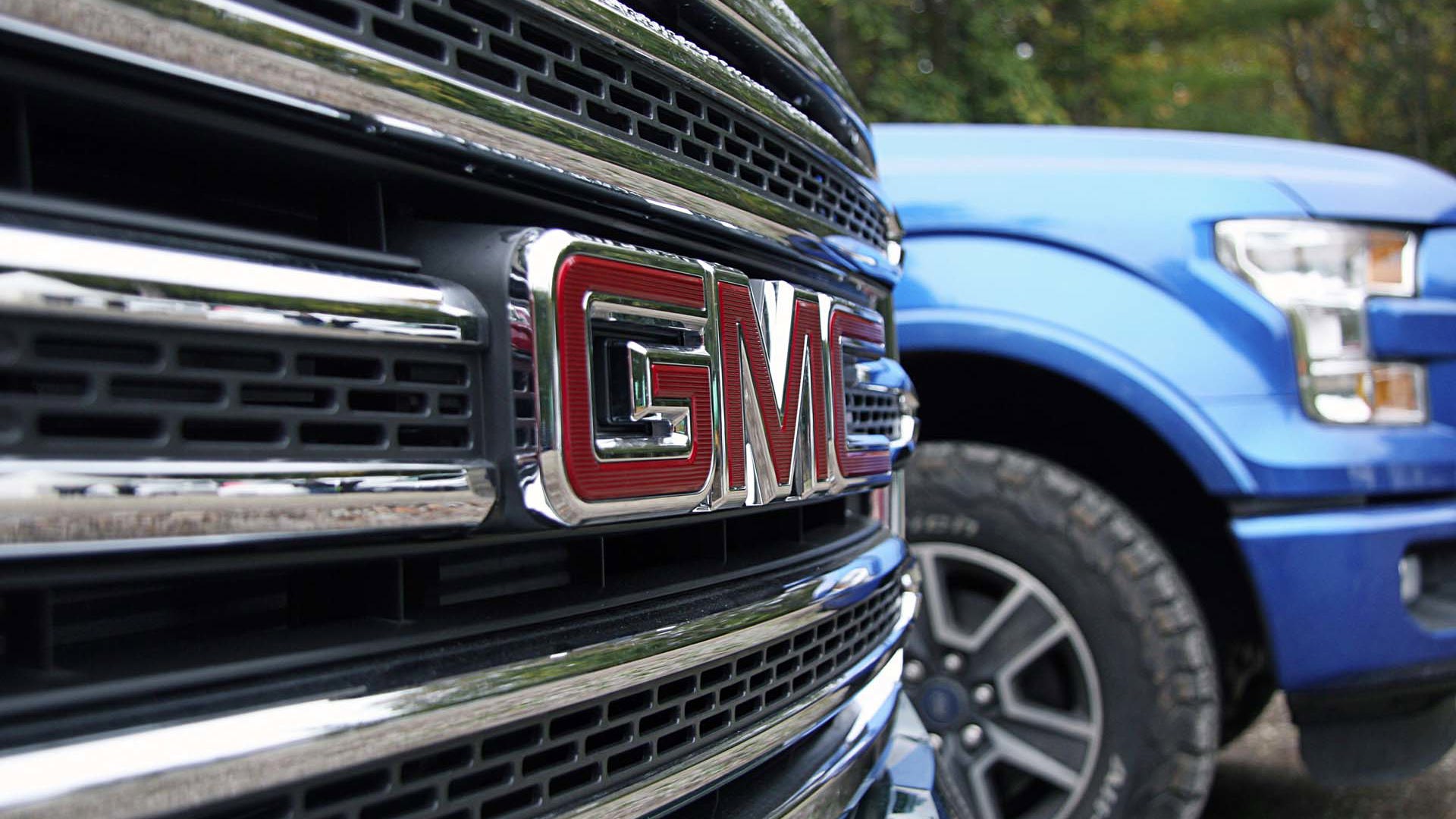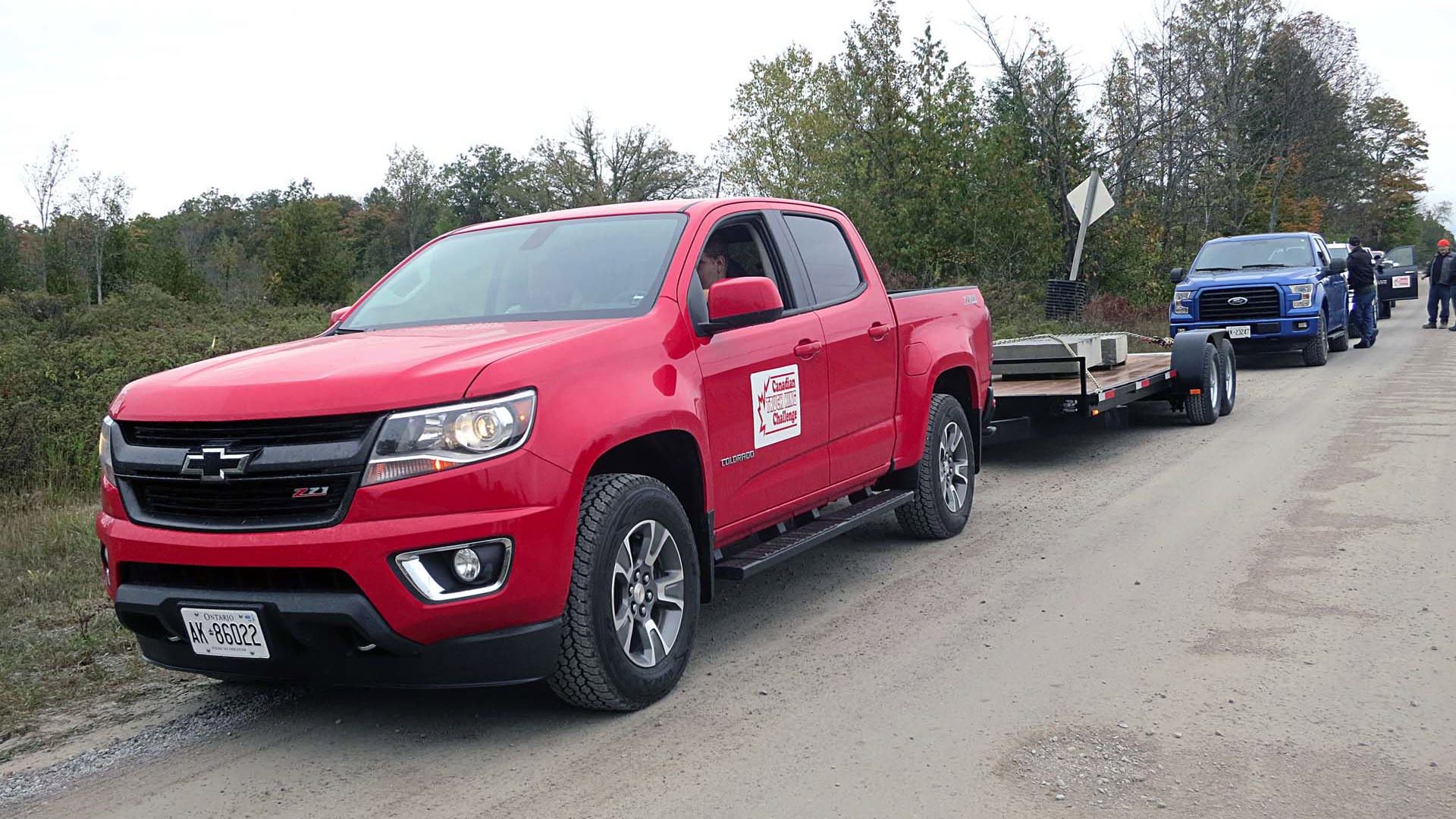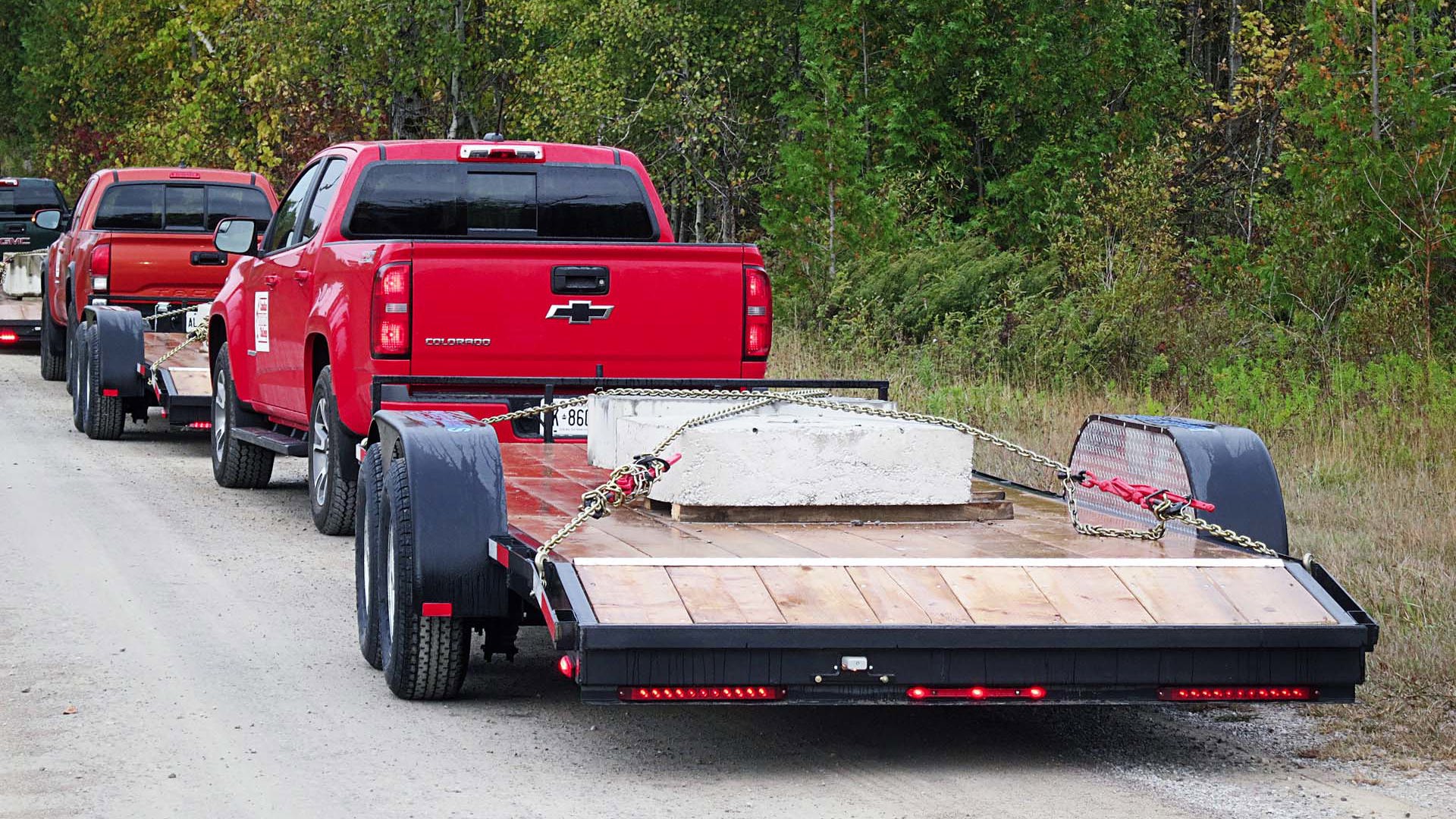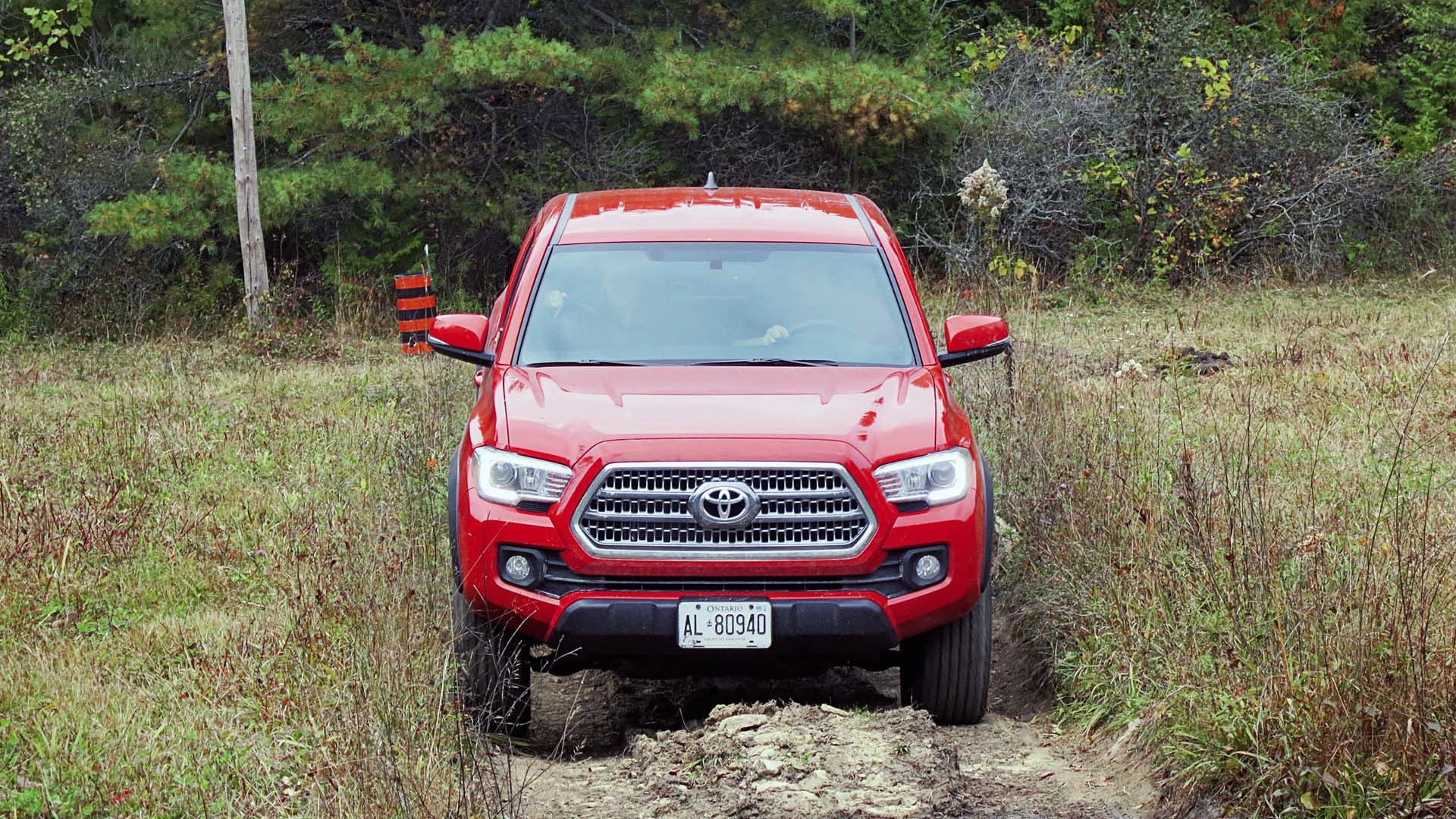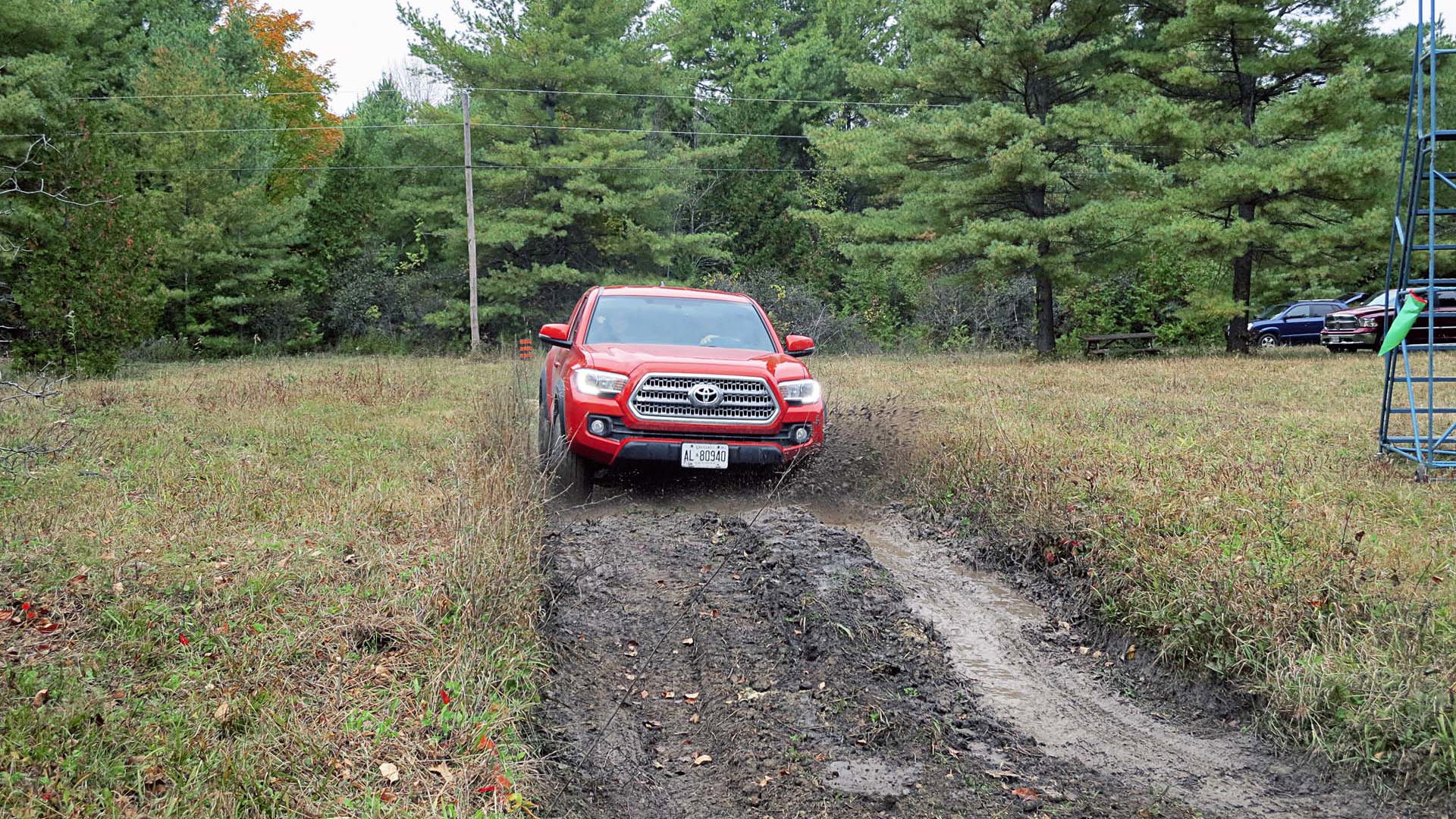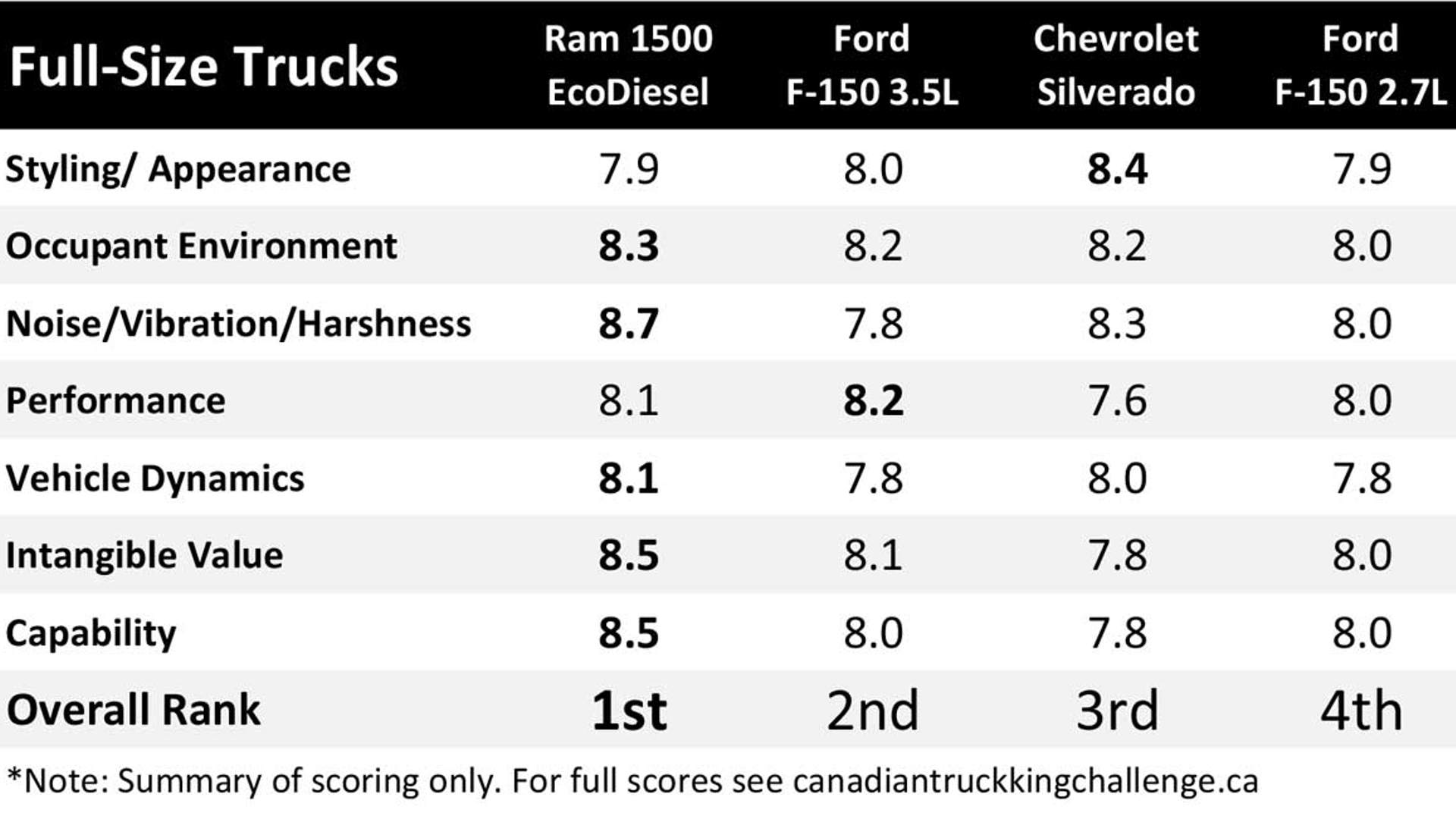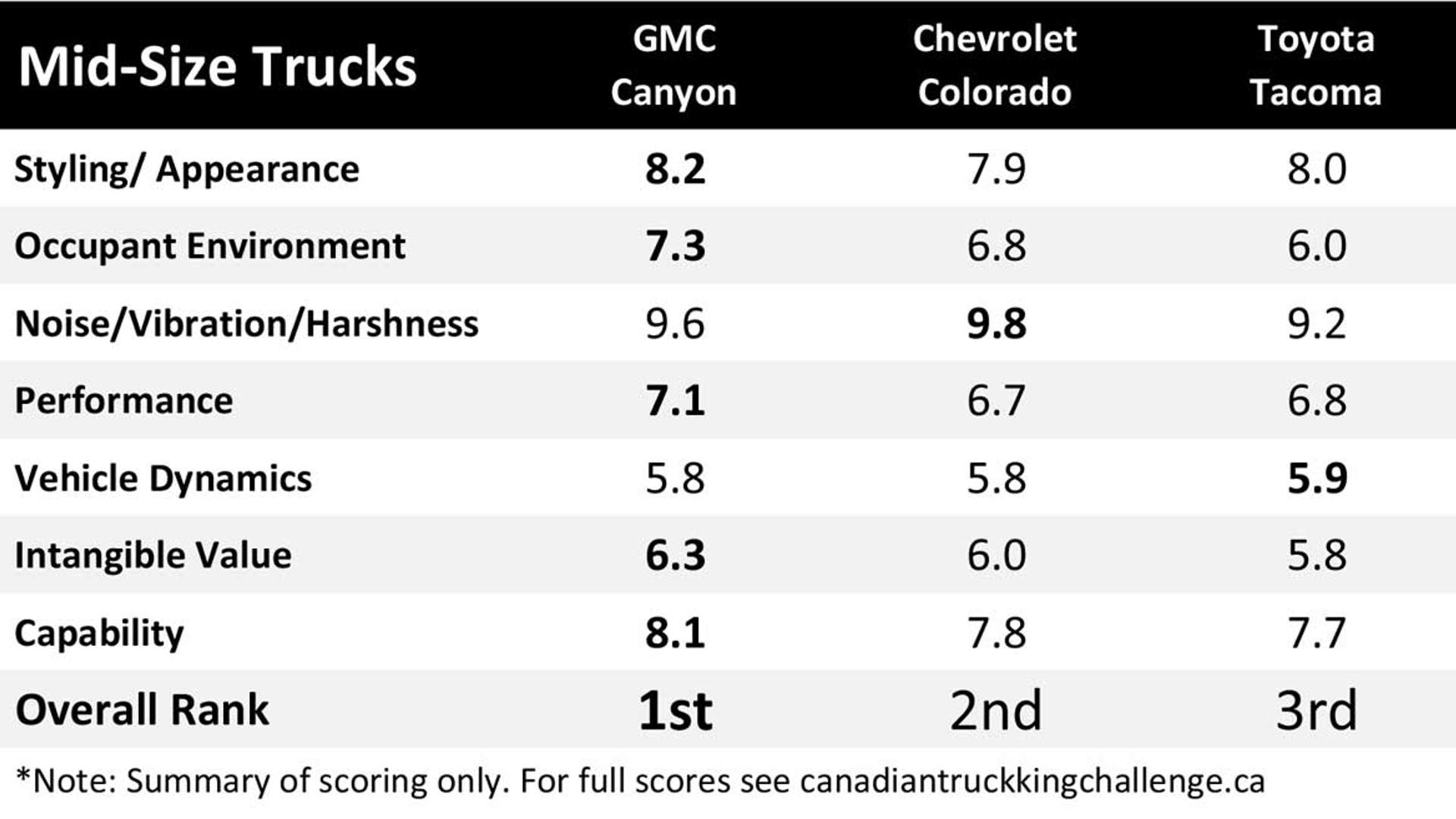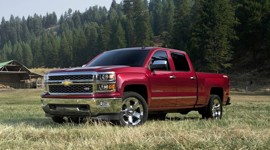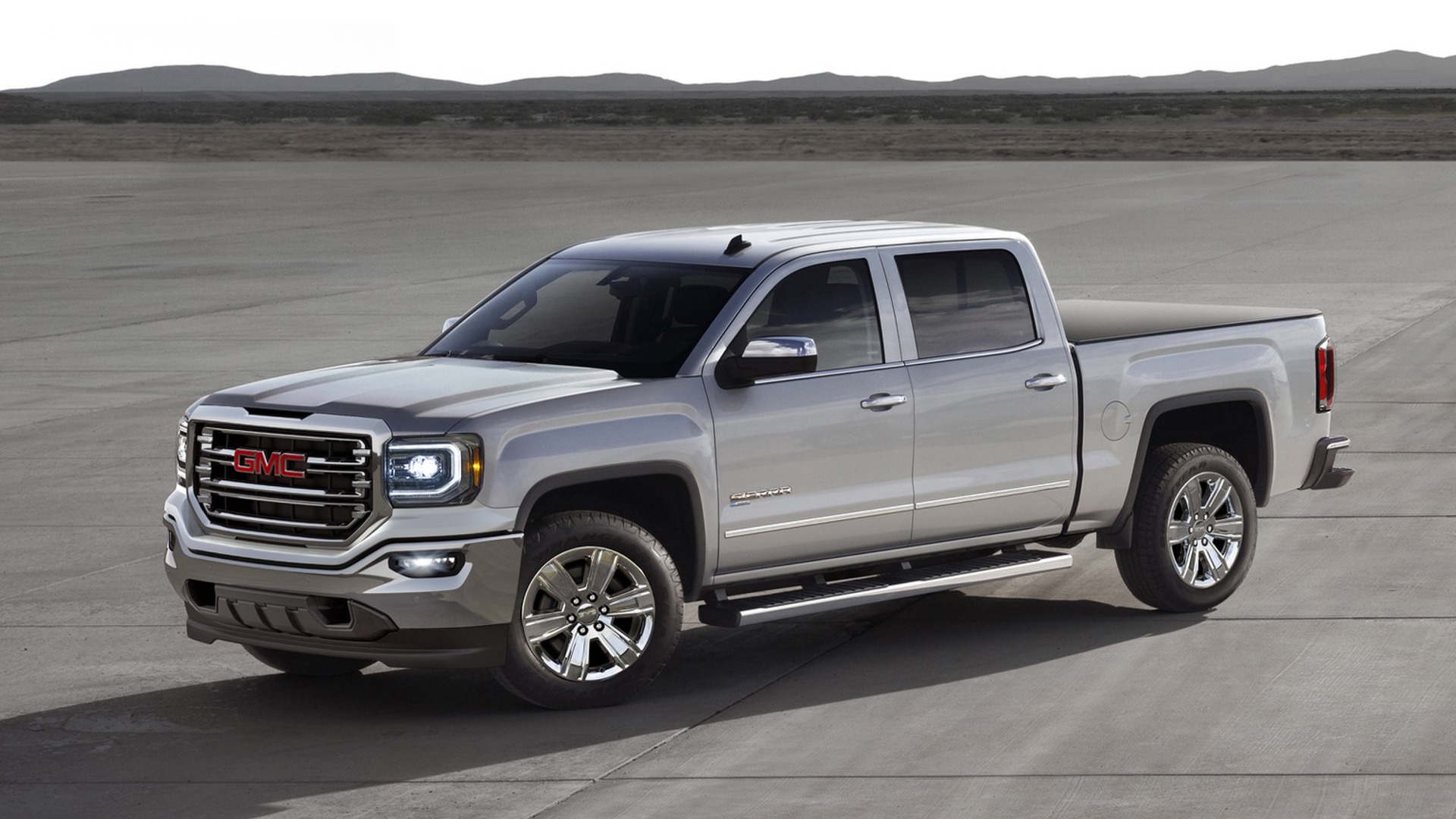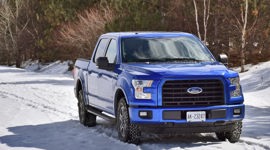Head Lake, ON – Huddling around the warmth of a crackling steel drum, I can't help but think, that in our down vests, red check flannels and ball caps, we look more inclined to wreak havoc upon the local deer population than to evaluate trucks.
But together, we make up the judging panel for the 2016 Canadian Truck King Challenge. Although this event is now in its 9th year, it's my first time here as a participating judge. I'll admit to some trepidation upon accepting the invitation, having heard tales of torrential downpours, knee-deep mud, and soggy nights at a dilapidated motel in previous years.
"Truck King" has evolved beyond its humble beginnings as a family-run venture into a thorough evaluation of the vehicles entered. Founder Howard Elmer, an automotive writer specializing in trucks, believes the Challenge is "the most comprehensive truck test in North America".
The event has gained increasing support from manufacturers, with representatives from each of the participating automakers (with the exception of Ford) present to observe and answer questions.
"This is gold to us," said Bradley Horn, FCA (Chrysler) Product Communication Manager.
"We love seeing trucks being worked like this. The guys at Auburn Hills (Michigan Research and Development) can't wait to get their hands on that data."
These are working vehicles, and work they did. Over two days we drove several hundred asphalt and gravel kilometres, towing and hauling heavy payload. Pickup trucks were subjected to further testing off-road, through mud, water and heavily rutted trails.
The Iron Wood test site is 70 acres of thick forest and dirt roads hewn into the rocky landscape. It's no pristine factory proving ground with groomed trails and immaculate tarmac. The vehicles, 14 in all, are parked in a rough semi-circle around a clearing hacked out of the woods. A forklift bustles back and forth industriously carrying payload for the large cargo vans, while three identical 10,000 lb GVWR lowboy trailers, especially constructed for this event, will later be loaded and hitched for the towing analysis. While manufacturer-supplied heavy machinery was previously used for towing cargo, this year we'll be using identical cement blocks: 2,000 lb for compact trucks and 4,000 for full-size. They might not be as photogenic, but their consistency removed any variables.
Reflecting the event's growth in size and scope, judges have now been divided into two teams. My team judged full-size trucks and medium cargo vans, the other focused on compact trucks and full-size cargo vans.
According to the rules of the Challenge, any 2015 vehicle not expected to undergo significant changes in the current year was eligible to compete against the new 2016s.
There were no changes in the Heavy Duty truck lineup this year, therefore they were not included. Last year's winner was the 2015 GMC Sierra HD.
Every participating vehicle was fitted with a data acquisition transponder, which collected fuel consumption, temperature and shift points to be later factored into the final results. Judges were not provided with this data, and submitted their subjective scoring to the organizers for the final result tallying.
Full-Size Light Duty Pickup Trucks
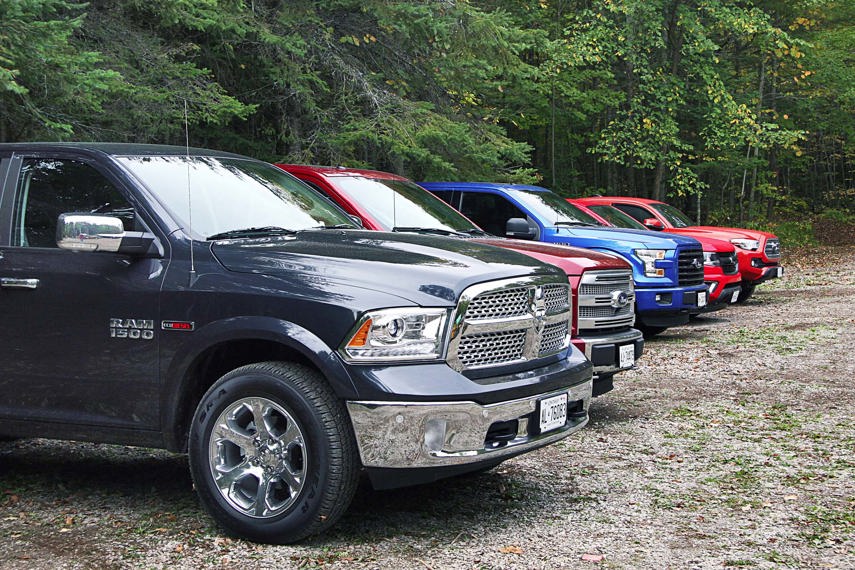
Ram 1500 3.0L V6 EcoDiesel, Ford F-150 3.5L V6 Ecoboost, Ford F-150 2.7L I4 Ecoboost, Chevrolet Silverado 5.3L V8
If you want to evaluate trucks properly, you have to think like a truck buyer.
Not only do they want a truck that can do what's asked of it, over and over again while remaining durable and reliable, but they expect their vehicles to feature the same level of comfort and technology found in any modern sedan. Trucks are no longer the rudimentary workhorses they once were, and manufacturers are continuously upping the ante with increasing amounts of useful technology, as well as a standard of performance once seen only in the heavy duty segment.
But the most important question when considering a truck is whether or not it can do the job.
And there's no way of answering that without actually putting it to the test, using the truck the way it was meant to be used.
The nine-member judging team of this year’s Canadian Truck King Challenge (CTKC), spent two days driving, hauling, towing and off-roading both full and medium size pickup trucks to determine which, in our opinion, were this year's champions.
Over a 17-km drive loop, the participating trucks were driven empty, laden with 1,000 lb payloads, and finally, pulling identical 2,000 lb trailers carrying 4,000 lb cement blocks. They were scored on design, ergonomics, NVH (noise, vibration and harshness) and performance during all phases of the on-road test, as well as a short off-road course.
Winner: 2016 Ram 1500 EcoDiesel
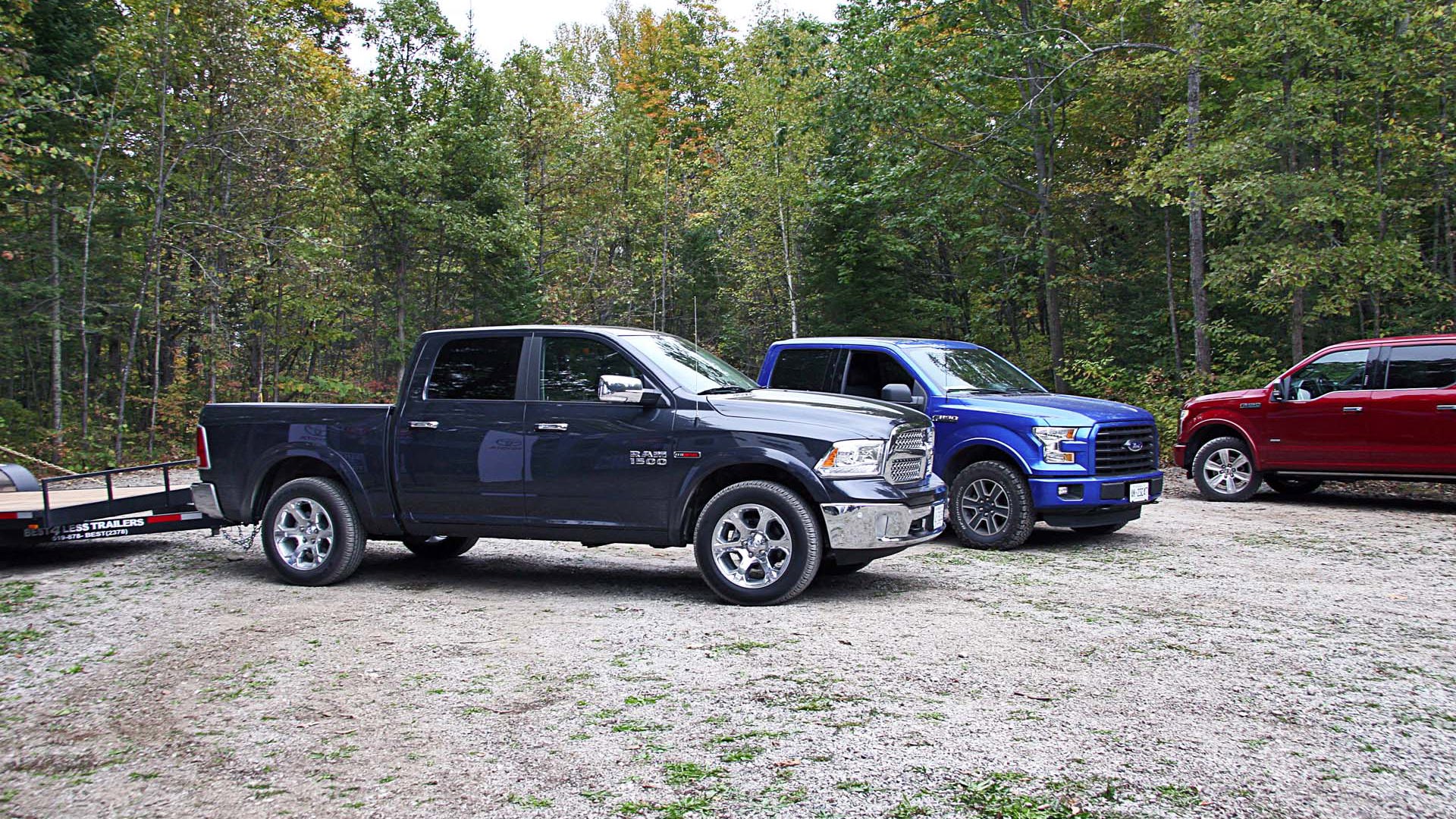
The Ram 1500 EcoDiesel was 2014's Full-Size Truck winner, returning this year to defend its title. Against new and improved competition, the Ram was able to impress the judges and emerge once again as the winning entry in its category.
While the Ram may not have had as many interior bells and whistles as its competitors, it made up for it with its excellent handling, a refined powertrain and low fuel consumption.
The diesel engine is an expensive option at $4,700, but it's offset by excellent fuel economy and readily available torque. For $1,695, the air suspension was a big contributor to this truck's consistently high performance.
The Ram felt the most settled over rough washboard roads, and adding 1,000 lb of payload only added to its sense of composure. Hitched up to the laden trailer, the Ram's automatic load-leveling air suspension and low-end torque made towing seem fairly effortless. The off-road test featured some fairly deep ruts, a sticky mud hole and a rough berm that was a rigorous test of clearance and departure angles. Here again, the air suspension's ability to raise the vehicle an extra couple inches in Off-Road setting gave the Ram an advantage over the rest of the field.
The Ford F-150 3.5L Ecoboost impressed most of us with its roomy interior and high level of content. A good-looking, square-hewn truck with a new lightweight, aluminum body, the F-150’s turbocharged V6 also did a fairly impressive job of emulating big V8 presence, thanks to its piped-in engine rumble. There are myriad, well-thought-out touches designed to make the job easier, including a key-fob operated tailgate, automatically deploying running boards and a pop-out step for easier box access.
While empty, both F-150 trucks were a little loose in the rear end over washboard gravel roads, and felt a little less stable than the Ram while towing. Some of this could be attributed to the stiff sidewalls of their chunky all-terrain tires, compared to the street tires of the Ram and Chevrolet trucks. The A/T tires gave the F-150s more grip on the off-road section, but their lower clearance caused more scraping, and the 3.5L actually hung up momentarily on a small hillock before scrambling off. Downhill approach was impeded by the lower front fascia, which was fortunately flexible enough to spring back without breaking. With this powertrain combination and configuration, the Ford F-150 had the highest towing capability in the group.
For such a relatively tiny displacement, Ford's F-150 2.7L EcoBoost is one heck of a performer. We continually had to remind ourselves that we were driving a four-cylinder equipped vehicle, that's how impressive it is.
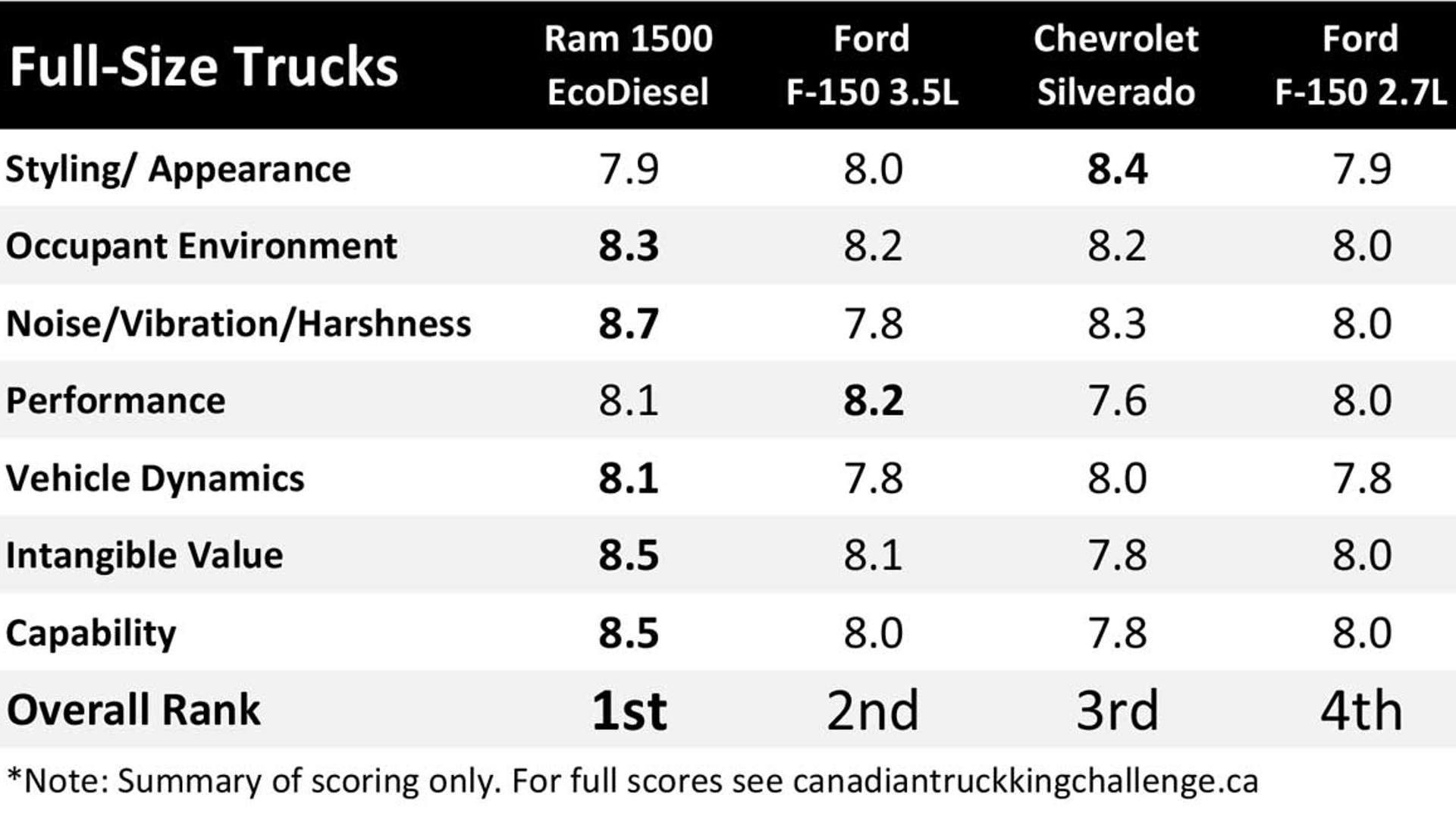
The F-150 2.7L handled the 1,000-lb payload well but it took longer to get into the torque band while towing. Still, it pulled strongly when up to speed but like the larger Ford, showed less rear end stability empty and loaded. Its FX4 Off Road package meant its sensitive underbelly was protected by skid plates, and the electronic locking rear differential powered us through the steep ruts easily.
But for the buyer looking for only moderate towing capability, its lower price and fuel economy make this truck a real bargain.
The 2016 Chevrolet Silverado 1500 High Country sports Chevy's new wide grille, which extends through the updated headlamps and imparts a broader, more square-hewn look to the vehicle. A premium leather interior and high level of creature comfort made the Silverado the luxury cruiser of the group. Notable options included the 4G LTE wifi hotspot, Apple CarPlay smartphone integration and new "kick wave" running board that deploys with the nudge of a foot. Composed and solid both empty and laden, the Silverado had the most refined ride of the group, yet grew noisy and laboured while towing. Puzzled by its less than stellar hauling performance, we popped the hood to discover that GM had supplied us with a 5.3L V8 equipped vehicle, instead of the 6.2L that was listed on our spec sheets. This explained the discrepancies in its performance expectations, which were perfectly adequate for the 5.3L powertrain.
The Silverado handled the off-road course without any difficulty, yet without the Ram's spectacular effortlessness.
Medium-Size Pickup Trucks
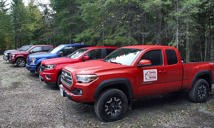
Chevrolet Colorado 3.6L V6, GMC Canyon 2.8L Duramax Diesel, Toyota Tacoma 3.5L V6
Over the past couple of decades this once-thriving segment has dwindled, manufacturers deserting in droves, until finally there were only a few models left.
But was that because buyers no longer wanted them? Or did they just not want what was being offered? Long considered a sporty, "toy" vehicle, the mid-size truck had languished in neglect, and the few that hung on were woefully outdated. Lured away by the better-equipped and more practical crossover segment or the heavily incentivized full-size trucks, buyers had given up on the compact truck market.
Last year, GM debuted the new GMC Canyon and Chevrolet Colorado, convinced that a small truck featuring the capability of full-size light duty trucks, combined with the practicality and comfort of a crossover would bring those buyers back. Despite the public's rather skeptical first reception, the two trucks have since become a resounding success. Other manufacturers have taken note – with a brand new Tacoma introduced this year and rumours that other nameplates will return. Compact trucks have become a popular segment again, and the excellent choices below presented us with a pretty tough category to evaluate. Over the same 17-km drive loop as the full size trucks, these vehicles were tested three ways: empty, with 1,000 lb. payload, and towing 2,000-lb. trailers loaded with 2,000 lb. of weight.
Winner: 2016 GMC Canyon Diesel
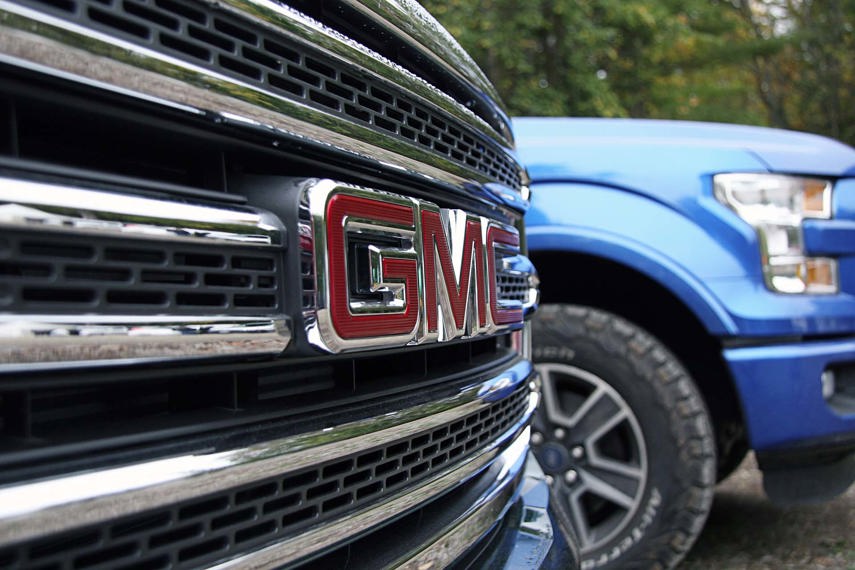
While the initial $4,400 outlay for GM's new 2.8L Duramax Diesel seems a bit steep, it is an impressive performer. The engine's impressive amount of easily accessed torque gives this compact 4x4 the pulling power of many full size trucks. As tested, the GMC was more upscale than its sister truck, the Colorado, the Canyon sporting leather upholstery and plenty of high tech content, including a 4G LTE wifi hotspot, and Apple CarPlay.
The Canyon impressed with its "big truck" ability in a small package, and was quiet and refined even while towing. Such serious working credentials as exhaust brake, tow/haul mode and integrated trailer brake controller dispel any "toy truck" misconceptions about the diesel Canyon. Saving wear and tear on brake components, the exhaust brake is a "smart" system, that holds the vehicle's downhill speed without any brake or throttle application. It may not have been as fun as the nimble Tacoma on the off-road course, but the Canyon got through it with no trouble.
Equipped with a 3.6L V6, Colorado was a nice little truck, but in the words of one of the judges, was simply "outshone by its diesel-powered Canyon cousin". As with the Canyon, the Colorado boasts plenty of high tech content, including the 4G LTE wifi Hotspot, Apple Carplay and a suite of safety systems. The V6 engine is quiet and refined, but it doesn't come close to the 2.8L Duramax Diesel in the Canyon when it comes to performance or fuel economy.
While it managed the off road course without any issues, it's not the Colorado's strong suit.
With its comfortable, quiet interior, the Colorado is probably the ideal truck for the former SUV or crossover owner who needs to tow the boat, or snowmobile on weekends.
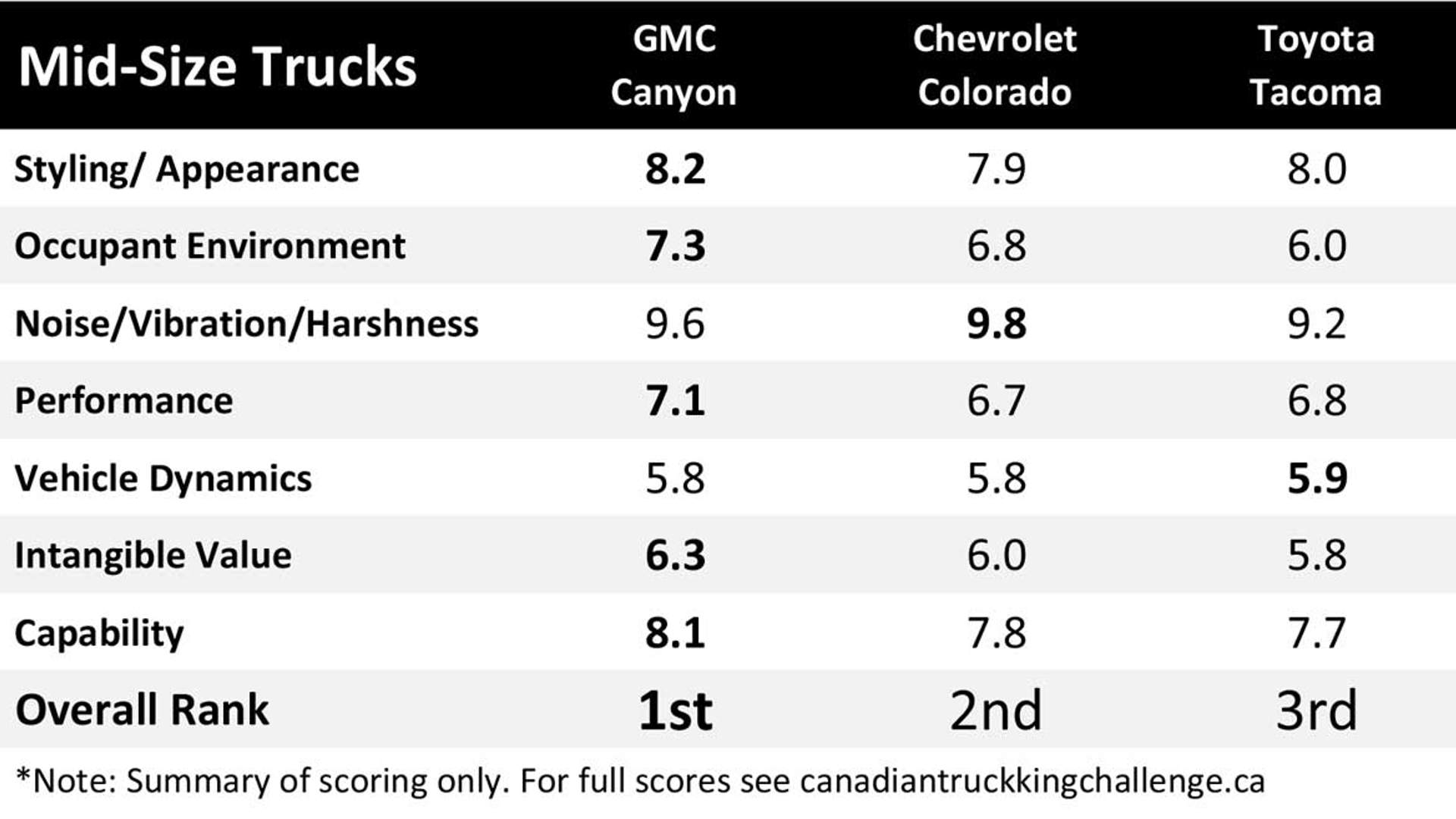
This new Tacoma is an absolute blast to drive, but it's more of a purpose-built, dedicated rock crawler as tested than all-around utility vehicle.
It's noisy on-road, moaning and groaning while towing a load, and is a lot less refined than the competitors, inside and out.
Its towing capacity has been raised to 6500 lb., but the Tacoma's not meant to be a hauler. Equipped with the TRD Off Road package, our tester was a bona fide bushwhacker, with Bilstein shocks, lock-up torque converter, rear differential lock, crawl control and skid plates.
The power output is scant by comparison, but the lightweight Tacoma scampered over the off-road course with ease. The Tacoma is the very definition of "sport truck" and targets a specific sort of buyer.
